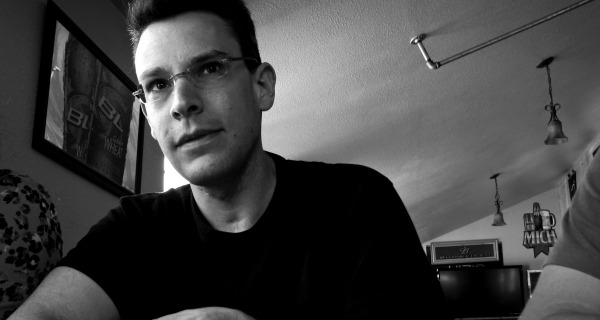
By Andre Gianfrancesco
Author Ben Loory is coming to this year's Lit Fest, and he knows a thing or two or three about writing. The author of two short story collections—Stories for Nighttime and Some for the Day and Tales of Falling and Flying—his work has appeared in The New Yorker and Tin House as well as on This American Life and Selected Shorts. (You can listen to one here!) A graduate of Harvard and the American Film Institute, he also used to be a screenwriter.
We caught up with him ahead of his visit to talk about changing writing careers, the three-act structure, and the trouble with endings.
Q. You’ll be leading an intensive on the three-act structure at Lit Fest. But isn't it time to abandon the three-act structure? Or is it still a useful tool for writers?
A. It's time to abandon it if you want to abandon it! And it's still a useful tool if you find it a useful tool. The only rule of writing is: do whatever works. Personally, I couldn't do without it.
Q. You were previously a screenwriter. When you switched to short stories, was there a learning curve?
A. I didn't really have a learning curve—quite the opposite, in fact. As a screenwriter, I always felt constricted and helpless and confused, like I was locked inside a barrel and someone was asking me to do some kind of extremely complicated ritualistic dance. I was constantly fighting against my natural instincts as a storyteller and making myself do things I didn't want to do in order to write things I had no interest in writing. When I finally switched to writing short stories, it was like I'd suddenly come home. I was out of the barrel and everything made sense. I didn't have to do the crazy weird dance, I could just walk around and look at things and sing my songs the way I wanted to. The only thing I actually learned along the way was that I was a short story writer! Somehow that had escaped me before.
Q. You’re also teaching a class on endings. In general, what is more difficult for you to write, the beginning of a story or the end? Why?
A. Oh, endings by far. Beginnings are easy—beginnings are nothing! You just make up some person and start following them around. You don't even have to know a single thing about them! If all else fails, you just stick 'em in a grocery store and start paying attention to what they throw in their cart. Eventually they'll see something or run into somebody or overhear a conversation or find something they forgot in their pocket a long time ago—whatever, something'll happen, it just has to, it's inevitable. Endings, on the other hand, are all but impossible! You've created this huge mess, and now somehow you have to sweep it all together and show how it actually makes some kind of beautiful sandcastle when you look at it from a certain direction?! What could be more impossible than that? Honestly, it's a nightmare every time.
Q. Do you have any stories you wish didn’t have to end?
A. Hell no—writing-wise, endings are the only thing I care about! Or, not the endings per se, but that feeling you get—as a reader or a writer—when you hit that final line and that thing inside you opens and you leap off into eternity and get to float there for a while. It's that feeling that I love, that feeling I'm always after. Everything else is just a means to that end.
Andre Gianfrancesco is Lighthouse's spring intern.

